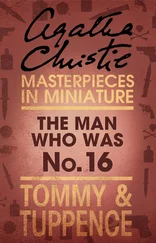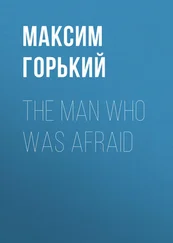“Dressed as Thursday!” said Syme in meditation. “It doesn’t sound a warm costume.”
“Oh, yes, sir,” said the other eagerly, “the Thursday costume is quite warm, sir. It fastens up to the chin.”
“Well, I don’t understand anything,” said Syme, sighing. “I have been used so long to uncomfortable adventures that comfortable adventures knock me out. Still, I may be allowed to ask why I should be particularly like Thursday in a green frock spotted all over with the sun and moon. Those orbs, I think, shine on other days. I once saw the moon on Tuesday, I remember.”
“Beg pardon, sir,” said the valet, “Bible also provided for you,” and with a respectful and rigid finger he pointed out a passage in the first chapter of Genesis. Syme read it wondering. It was that in which the fourth day of the week is associated with the creation of the sun and moon. Here, however, they reckoned from a Christian Sunday.
“This is getting wilder and wilder,” said Syme, as he sat down in a chair. “Who are these people who provide cold pheasant and Burgundy, and green clothes and Bibles? Do they provide everything?”
“Yes, sir, everything,” said the attendant gravely. “Shall I help you on with your costume?”
“Oh, hitch the bally thing on! ” said Syme impatiently.
But though he affected to despise the mummery, he felt a curious freedom and naturalness in his movements as the blue and gold garment fell about him; and when he found that he had to wear a sword, it stirred a boyish dream. As he passed out of the room he flung the folds across his shoulder with a gesture, his sword stood out at an angle, and he had all the swagger of a troubadour. For these disguises did not disguise, but reveal.
AS Syme strode along the corridor he saw the Secretary standing at the top of a great flight of stairs. The man had never looked so noble. He was draped in a long robe of starless black, down the centre of which fell a band or broad stripe of pure white, like a single shaft of light. The whole looked like some very severe ecclesiastical vestment. There was no need for Syme to search his memory or the Bible in order to remember that the first day of creation marked the mere creation of light out of darkness. The vestment itself would alone have suggested the symbol; and Syme felt also how perfectly this pattern of pure white and black expressed the soul of the pale and austere Secretary, with his inhuman veracity and his cold frenzy, which made him so easily make war on the anarchists, and yet so easily pass for one of them. Syme was scarcely surprised to notice that, amid all the ease and hospitality of their new surroundings, this man’s eyes were still stern. No smell of ale or orchards could make the Secretary cease to ask a reasonable question.
If Syme had been able to see himself, he would have realised that he, too, seemed to be for the first time himself and no one else. For if the Secretary stood for that philosopher who loves the original and formless light, Syme was a type of the poet who seeks always to make the light in special shapes, to split it up into sun and star. The philosopher may sometimes love the infinite; the poet always loves the finite. For him the great moment is not the creation of light, but the creation of the sun and moon.
As they descended the broad stairs together they overtook Ratcliffe, who was clad in spring green like a huntsman, and the pattern upon whose garment was a green tangle of trees. For he stood for that third day on which the earth and green things were made, and his square, sensible face, with its not unfriendly cynicism, seemed appropriate enough to it.
They were led out of another broad and low gateway into a very large old English garden, full of torches and bonfires, by the broken light of which a vast carnival of people were dancing in motley dress. Syme seemed to see every shape in Nature imitated in some crazy costume. There was a man dressed as a windmill with enormous sails, a man dressed as an elephant, a man dressed as a balloon; the two last, together, seemed to keep the thread of their farcical adventures. Syme even saw, with a queer thrill, one dancer dressed like an enormous hornbill, with a beak twice as big as himself the queer bird which had fixed itself on his fancy like a living question while he was rushing down the long road at the Zoological Gardens. There were a thousand other such objects, however. There was a dancing lamp-post, a dancing apple tree, a dancing ship. One would have thought that the untamable tune of some mad musician had set all the common objects of field and street dancing an eternal jig. And long afterwards, when Syme was middle-aged and at rest, he could never see one of those particular objects a lamppost, or an apple tree, or a windmill without thinking that it was a strayed reveller from that revel of masquerade.
On one side of this lawn, alive with dancers, was a sort of green bank, like the terrace in such old-fashioned gardens.
Along this, in a kind of crescent, stood seven great chairs, the thrones of the seven days. Gogol and Dr. Bull were already in their seats; the Professor was just mounting to his. Gogol, or Tuesday, had his simplicity well symbolised by a dress designed upon the division of the waters, a dress that separated upon his forehead and fell to his feet, grey and silver, like a sheet of rain. The Professor, whose day was that on which the birds and fishes the ruder forms of life were created, had a dress of dim purple, over which sprawled goggle-eyed fishes and outrageous tropical birds, the union in him of unfathomable fancy and of doubt. Dr. Bull, the last day of Creation, wore a coat covered with heraldic animals in red and gold, and on his crest a man rampant. He lay back in his chair with a broad smile, the picture of an optimist in his element.
One by one the wanderers ascended the bank and sat in their strange seats. As each of them sat down a roar of enthusiasm rose from the carnival, such as that with which crowds receive kings. Cups were clashed and torches shaken, and feathered hats flung in the air. The men for whom these thrones were reserved were men crowned with some extraordinary laurels. But the central chair was empty.
Syme was on the left hand of it and the Secretary on the right. The Secretary looked across the empty throne at Syme, and said, compressing his lips
“We do not know yet that he is not dead in a field.”
Almost as Syme heard the words, he saw on the sea of human faces in front of him a frightful and beautiful alteration, as if heaven had opened behind his head. But Sunday had only passed silently along the front like a shadow, and had sat in the central seat. He was draped plainly, in a pure and terrible white, and his hair was like a silver flame on his forehead.
For a long time it seemed for hours that huge masquerade of mankind swayed and stamped in front of them to marching and exultant music. Every couple dancing seemed a separate romance; it might be a fairy dancing with a pillar-box, or a peasant girl dancing with the moon; but in each case it was, somehow, as absurd as Alice in Wonderland, yet as grave and kind as a love story. At last, however, the thick crowd began to thin itself. Couples strolled away into the garden-walks, or began to drift towards that end of the building where stood smoking, in huge pots like fish-kettles, some hot and scented mixtures of old ale or wine. Above all these, upon a sort of black framework on the roof of the house, roared in its iron basket a gigantic bonfire, which lit up the land for miles. It flung the homely effect of firelight over the face of vast forests of grey or brown, and it seemed to fill with warmth even the emptiness of upper night. Yet this also, after a time, was allowed to grow fainter; the dim groups gathered more and more round the great cauldrons, or passed, laughing and clattering, into the inner passages of that ancient house. Soon there were only some ten loiterers in the garden; soon only four. Finally the last stray merry-maker ran into the house whooping to his companions. The fire faded, and the slow, strong stars came out. And the seven strange men were left alone, like seven stone statues on their chairs of stone. Not one of them had spoken a word.
Читать дальше








